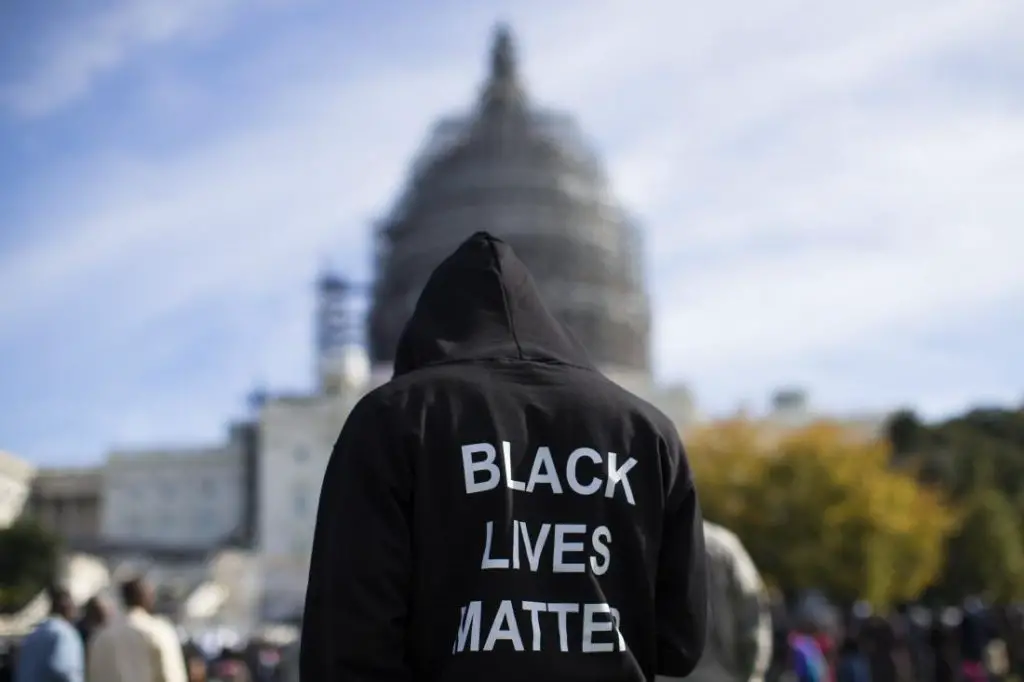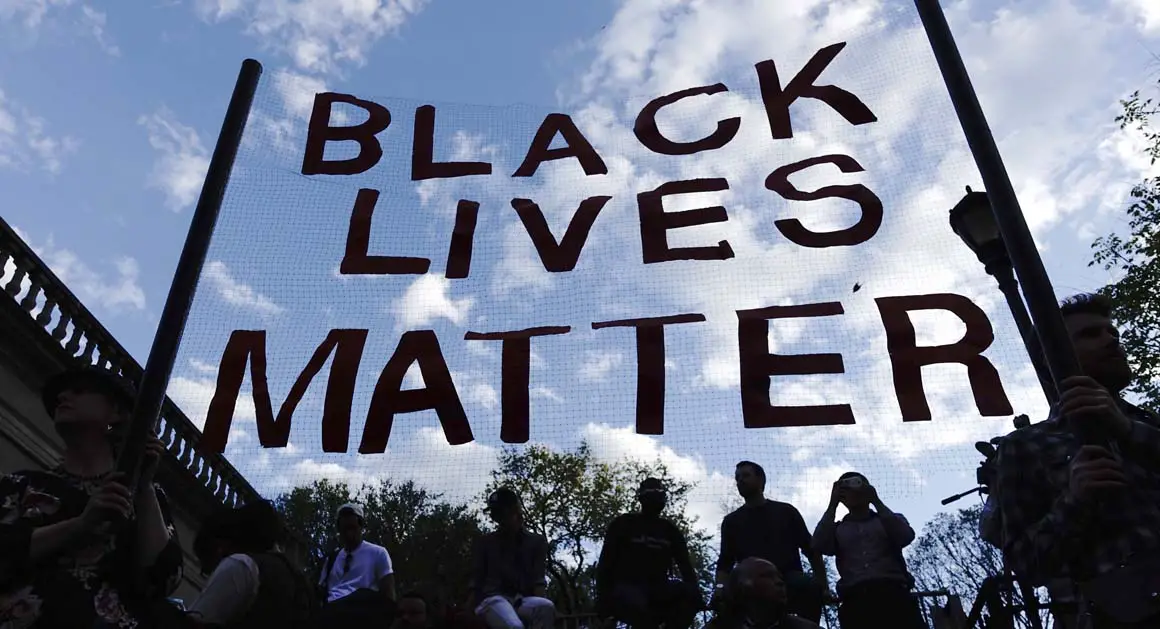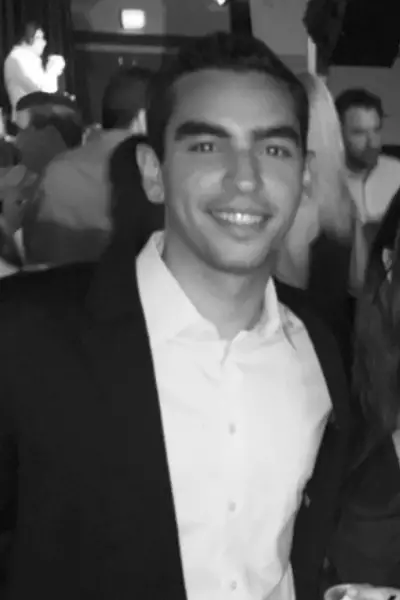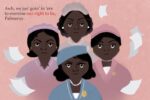Although points of view may differ, the nation ended last week, one that was as racially tense and divisive as any I can remember in my lifetime, discouraged.
The country continues to struggle with racial disparities that many people, for some reason, believe were eradicated long ago. That many Americans will end this week angry and vengeful, opinionated and righteous, scared and vulnerable, only testifies to the country’s continuing racial divide.
Racism in America didn’t begin last week, but, as blindness becomes less feasible in our increasingly connected world, many are finally being forced to acknowledge it. When someone on Twitter questioned what has changed in America, Patrick Claybon summed it up chillingly: “There are more cameras.”

Despite being shaken by the events, most people will go on with their lives. Alton Sterling and Philando Castile, though, will not. Neither will Brent Thompson, Michael Smith, Lorne Ahrens, Patrick Zamarripa and Michael Krol—policemen murdered in the streets of Dallas while protecting citizens of all races.
When you think of the past week, you can’t forget its seven victims. Each was taken unjustly; none deserved to die.
But showing outrage at the killings of Sterling and Castile does not mean you are anti-police. What happened in Dallas was an attack on freedom and a horrific tragedy. Five brave men were murdered, and an entire nation grieves. But the injustices in Sterling and Castile’s tragedies must be understood, too.
I’m sure many black Americans have asked themselves many times, What is there to say that hasn’t already been said? What more can happen that hasn’t already happened before the rest of our country gets it? Then last week happened. Surely this time, the country will face reality.
Upon reflection of this nation’s history, you might struggle to believe that its citizens will learn anything from the past week. If racial injustice has gone unnoticed in the past, why would this week change anything?
It’s too true that racism is intricately woven into the daily lives of many Americans, making numbness to it easy. Though often unintentional, simple things such as the way people speak and the stereotypes they create have created a class system in America that’s encoded in the very psyche of its people, whether or not they are aware of it.
Alton Sterling and Philando Castile’s skin color played a role in their deaths—probably at least as much as any move they made, thing they said or aspect of their past. In other words, the same stereotypes that many Americans unknowingly perpetuate every day played a role in killing those two men.
In fact, in the case of Castile, the officer was caught on audio before pulling the vehicle over saying, “I’m going to stop a car…the two occupants look like people that were involved in a robbery. The driver looks like one of our suspects just ‘cause of the wide set nose.”
To many Americans, saying race helped get Sterling and Castile killed is an obvious, noncontroversial assessment of what happened. After all, it’s the main reason thousands of people are protesting in the streets.
Others disagree. They say the role of race is exaggerated and that we must wait for the facts.
Indeed we must wait, since although there is not much that can justify what was captured in those recordings, it’s impossible to know everything transpired beyond the video.
But waiting does not mean inaction. It’s critical that everyone—critics and proponents of BLM alike—acknowledges the history that has led to millions of Americans distrusting law enforcement. It’s not victimization or politics. It’s the long accumulation and heavy weight of too many injustices gone unpunished.
Many critics focus on the semantics of the “Black Lives Matter” name, but in doing so they miss the point. Millions of Americans feel so embattled by their country that they feel the need to reiterate the importance of their lives—not their rights, not their access to equal opportunity, not their class mobility—their lives.
Considering the demands of previous civil rights movements, such as the right to vote or end desegregation, it would appear as if the quality of life for black Americans has only worsened with time; their expectations have been so cowed by an unjust system that now their primary demand is simply their right to life. Such a remonstrance is not unreasonable, nor is it aggressive or antagonistic. The movement is practically a plea, an evocation of basic human decency, asking only to be allowed to live as other are allowed to live.
Moments before Martin Luther King Jr. delivered his “I Have a Dream” speech in 1965, John Lewis spoke about wanting a country where citizens find it “unnecessary to March on Washington…and in the streets of Birmingham.” Over five decades later, I too want to live in a country where citizens don’t feel that a Black Lives Matter movement is necessary, but many do.
Like so many black parents, Valerie Castile taught her son to “comply…that’s the key thing in order to survive being stopped by police.” From everything the nation has learned from his killing, Philando Castile isn’t dead today because he didn’t listen to his mother; he’s dead despite listening to his mother.
Valerie Castile’s advice was not motivated by hatred. It stemmed from love and experience. However you feel about it, the idea that black parents have to worry about their child being the victim of police violence should be a warning to the country.
Sam Cooke’s 1964 hit “A Change is Gonna Come” became an anthem of the Civil Rights Movement. “It’s been a long time coming, but I know change is gonna come,” Cooke sang.
For Brent Thompson, Michael Smith, Lorne Ahrens, Patrick Zamarripa, Michael Krol, Alton Sterling and Philando Castile though, change didn’t come soon enough.

















